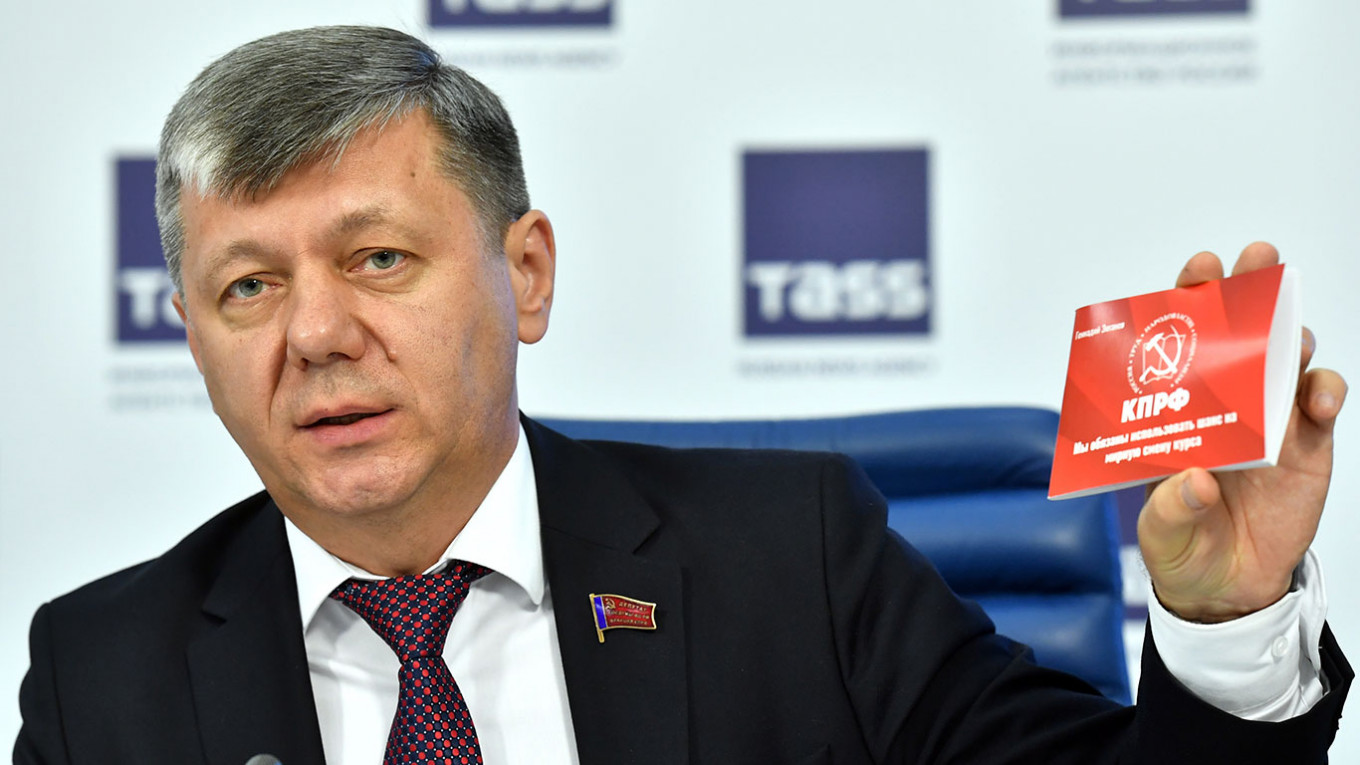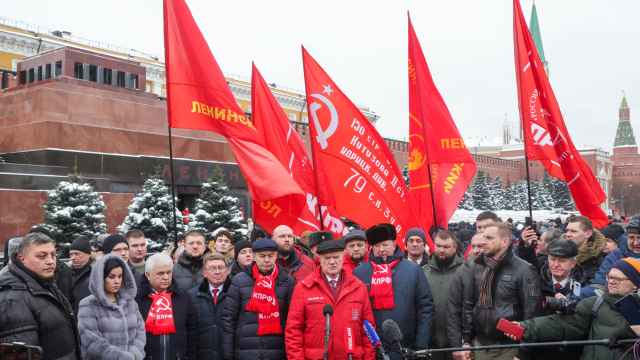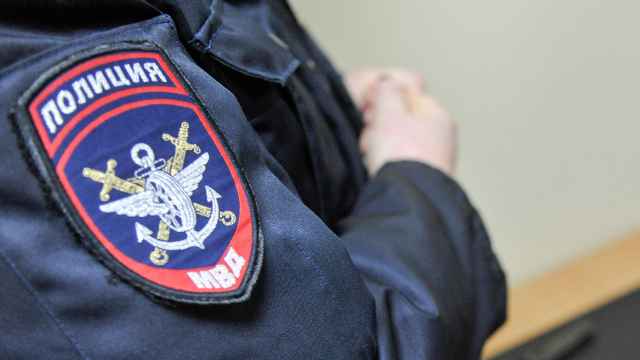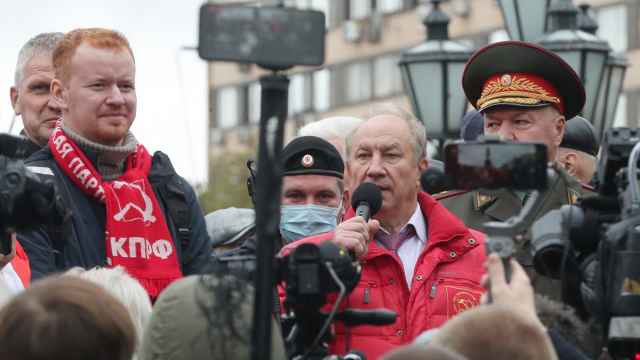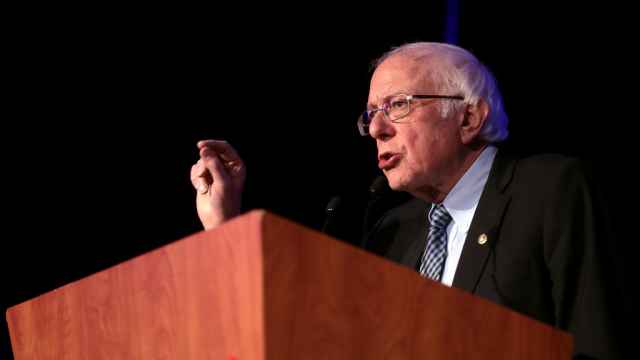Russia’s Communist Party will not recognize electronic voting results which reversed its candidates’ strong leads in the country’s parliamentary elections held over the weekend, a party official said Monday.
Several Communist Party candidates who appeared set to win their races suddenly fell behind candidates from the ruling, pro-Kremlin party as soon as election officials started releasing e-voting results Monday.
The Communists saw “how the picture changed after the digital result was thrown out,” Dmitry Novikov, deputy chairman of the party’s Central Committee, told reporters.
“We will prove and convince the country that it needs to rebel and fight against these digital innovations,” the Ekho Moskvy radio station quoted Novikov as saying.
Communist Party leader Gennady Zyuganov called on supporters “to defend the election results like the Podolsk cadets defended Moscow [during World War II].”
Mikhail Lobanov, a Communist Party candidate in a western Moscow district, led against pro-Kremlin television host Yevgeny Popov by a 10,800-vote margin. After the e-voting results were released, Popov defeated Lobanov by 20,000 votes.
"I know this result is not possible," Lobanov tweeted, calling on all candidates who lost due to e-voting to "meet today and discuss further actions” on Pushkin Square in central Moscow.
Moscow authorities denied Communist Party requests to hold protests on Monday, Tuesday and over the weekend soon after, citing coronavirus restrictions.
Critics and independent election observers have decried e-voting, which was introduced in Moscow and a handful of other cities due to the coronavirus pandemic, saying it makes it far easier to falsify votes. While election officials initially said e-voting results would be made public as soon as polls closed Sunday evening, the results were delayed several times, drawing widespread suspicion.
The Moscow city administration's IT chief Eduard Lysenko Eduard Lysenko explained to the RBC news website that the results were delayed because they had to be recounted at least four times. He linked this need to the possibility of a postponed vote, which was provided only to Muscovites.
Jailed Kremlin critic Alexei Navalny and his allies had called on supporters to cast their ballots for scores of Communist Party candidates nationwide, who they identified as the most likely figures to defeat United Russia in the elections, in their “Smart Voting” initiative. Google, YouTube and Apple blocked the "Smart Voting" lists and its app over the weekend, citing a Russian government request due to Navalny's organizations being designated "extremist"
“Electronic voting robbed this procedure of even a hint of reality,” Navalny’s spokeswoman Kira Yamish tweeted.
The ruling, pro-Putin United Russia party has claimed a landslide victory in the elections to Russia’s lower-house State Duma. With 90% of the votes counted by midday on Monday, United Russia was ahead with nearly 50% of the vote, followed by the Communist Party with almost 20%.
A Message from The Moscow Times:
Dear readers,
We are facing unprecedented challenges. Russia's Prosecutor General's Office has designated The Moscow Times as an "undesirable" organization, criminalizing our work and putting our staff at risk of prosecution. This follows our earlier unjust labeling as a "foreign agent."
These actions are direct attempts to silence independent journalism in Russia. The authorities claim our work "discredits the decisions of the Russian leadership." We see things differently: we strive to provide accurate, unbiased reporting on Russia.
We, the journalists of The Moscow Times, refuse to be silenced. But to continue our work, we need your help.
Your support, no matter how small, makes a world of difference. If you can, please support us monthly starting from just $2. It's quick to set up, and every contribution makes a significant impact.
By supporting The Moscow Times, you're defending open, independent journalism in the face of repression. Thank you for standing with us.
Remind me later.


